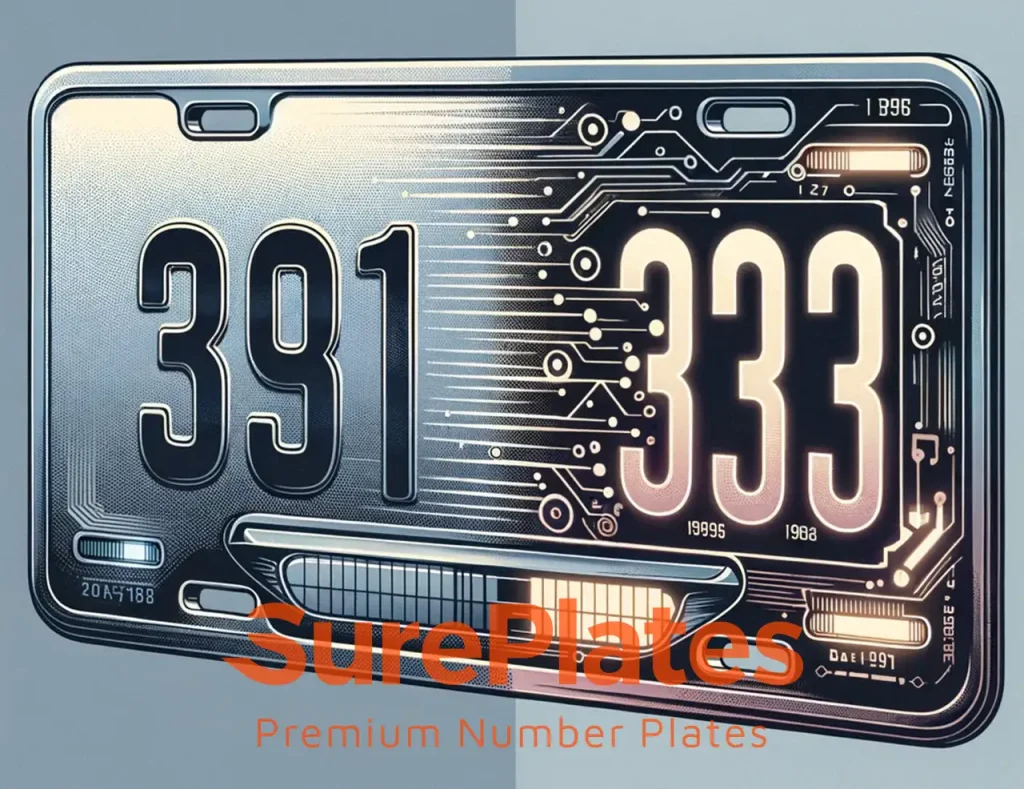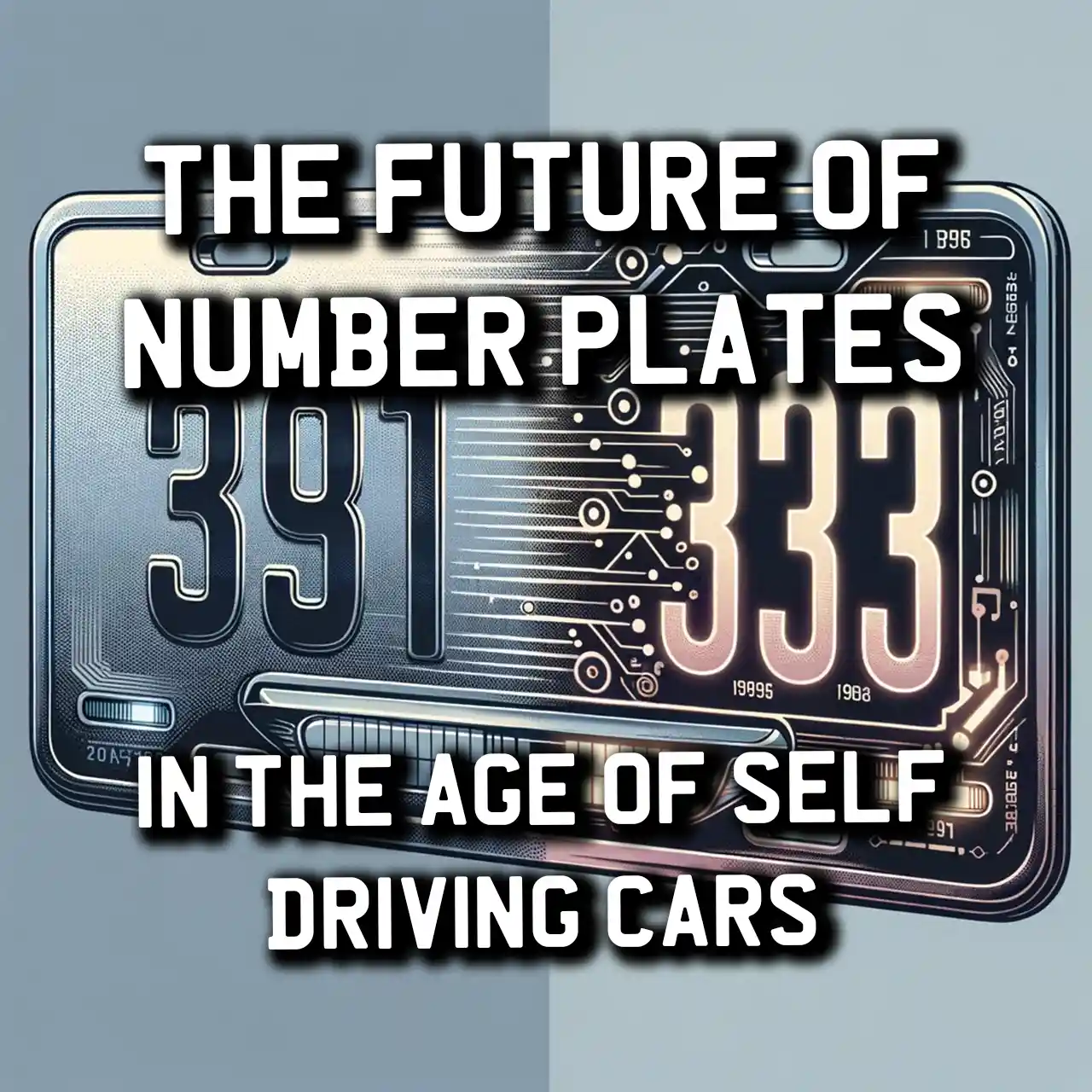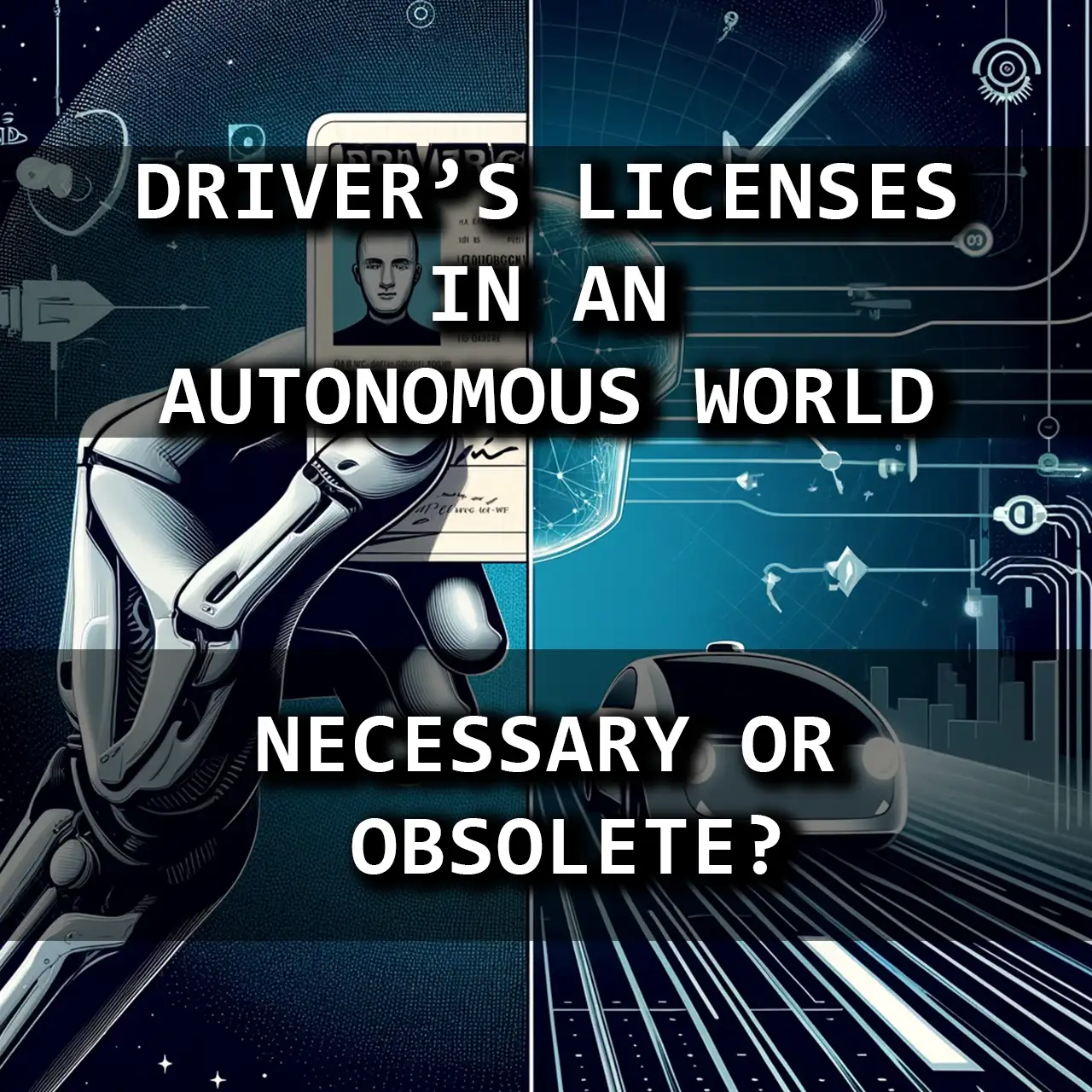As we stand on the precipice of a new era in transportation, with self-driving cars poised to revolutionise the way we travel, it’s natural to question the future of certain vehicle components we’ve long taken for granted. One such element is the humble number plate. In a world where autonomous vehicles communicate wirelessly and navigate without human intervention, will we still need these physical identifiers? In this opinion piece, we’ll explore the potential future of number plates and consider whether they’ll remain relevant in the age of self-driving cars.

The Case for Keeping Number Plates
While it’s tempting to imagine a future where number plates are rendered obsolete by advanced technology, there are several compelling reasons why they may remain an essential part of our vehicles, even in the age of self-driving cars.
- Legal Compliance and Accountability: Number plates serve as a vital means of identifying vehicles and their owners, which is crucial for maintaining legal compliance and accountability on the roads. In the event of an accident or traffic violation, number plates allow authorities to quickly trace the vehicle back to its owner, ensuring that appropriate actions can be taken. Even with self-driving cars, there may be instances where liability needs to be determined, and number plates could play a key role in this process.
- Emergency Situations: In emergency situations, such as a vehicle malfunction or a passenger experiencing a medical crisis, number plates can help emergency services quickly locate and identify the vehicle in question. While self-driving cars may be equipped with advanced communication systems, having a visible, external identifier like a number plate can provide an additional layer of security and ensure that help can reach those in need as quickly as possible.
- Personalisation and Identity: Many vehicle owners take pride in their personalised number plates, seeing them as an extension of their identity and a way to make their car truly unique. The demand for private number plates has grown significantly in recent years, with DVLA-registered suppliers like SurePlates offering a wide range of customisation options. It’s likely that even in a future dominated by self-driving cars, people will still want to express their individuality through their vehicles, and number plates may remain an important avenue for doing so.
The Case for Phasing Out Number Plates
On the other hand, there are also compelling arguments for why number plates may eventually become a relic of the past as self-driving cars become the norm.
- Advanced Communication Systems: Self-driving cars will likely be equipped with advanced communication systems that allow them to wirelessly transmit important information, such as vehicle identification numbers and ownership details, to other vehicles and infrastructure. This could potentially render physical number plates unnecessary, as all relevant data would be readily available through digital means.
- Streamlined Design: As vehicle design evolves to accommodate the unique needs of self-driving cars, there may be a push towards streamlining and simplifying exterior components. Removing the need for physical number plates could allow for cleaner, more aerodynamic designs that optimise performance and efficiency.
- Reduced Maintenance and Costs: Eliminating the need for physical number plates could also lead to reduced maintenance costs for vehicle owners. No longer would they need to worry about replacing damaged or worn plates, or ensuring that their plates remain compliant with evolving DVLA regulations. This could ultimately result in cost savings and a more hassle-free ownership experience.
Further Reading
You may also be interested in: Driver’s Licenses in an Autonomous World: Necessary or Obsolete?
The Impact on Personalised Number Plates and the Private Plate Market
One interesting aspect to consider is how the rise of self-driving cars might impact the personalised number plate market. Currently, there is a thriving industry surrounding the sale and transfer of private number plates, with many vehicle owners willing to pay significant sums for desirable registrations.
In a future where self-driving cars are the norm, it’s possible that the demand for personalised plates may diminish, as the focus shifts away from individual vehicle ownership and towards shared or subscription-based models. However, it’s equally plausible that the desire for self-expression and uniqueness will persist, and that personalised plates will continue to be a sought-after commodity.
Suppliers may need to adapt their offerings to cater to the changing needs of self-driving car owners, perhaps by developing new plate technologies that integrate seamlessly with autonomous vehicles’ communication systems or by offering more advanced customisation options that go beyond traditional printed or embossed plates. Ultimately, the future of the private plate market will depend on how society’s attitudes towards vehicle ownership and personalisation evolve in the age of self-driving cars
Fun Fact: The Oldest Number Plate in the UK
Did you know that the oldest surviving number plate in the United Kingdom dates back to 1903? The plate, which reads “A1,” was issued in London As of 16 March 2023, the A1 registration plate was assigned to a black 2007 Mini. While the future of number plates may be uncertain, there’s no denying the rich history and cultural significance behind these iconic vehicle identifiers.
The Verdict: A Balanced Approach
In my opinion, the future of number plates in the age of self-driving cars is likely to be one of balance and integration. While advanced communication systems and streamlined designs may reduce the need for traditional physical plates, there will still be important roles for these identifiers to play, particularly in terms of legal compliance, emergency situations, and personal expression.

I believe that we’ll see a gradual evolution of number plates, potentially giving way to more advanced, digitally integrated designs that combine the best of both worlds. These “smart plates” could display dynamic information, communicate wirelessly with other vehicles and infrastructure, and still allow for a degree of personalisation and customisation.
In Conclusion
As we navigate the uncharted waters of a future dominated by self-driving cars, it’s clear that many aspects of vehicle ownership and operation will need to adapt and evolve. While the role of number plates may change, I believe that they will remain an essential part of our vehicles for the foreseeable future, serving important practical and personal functions.
At SurePlates, we’re committed to staying at the forefront of number plate technology and design. As a trusted, DVLA-registered supplier, we’ll continue to offer the highest quality 4D and gel number plates, while also exploring new and innovative solutions that meet the changing needs of vehicle owners in the age of self-driving cars.
Whether you’re a proud owner of a personalised plate or simply appreciate the practical and legal importance of these identifiers, one thing is certain: the future of number plates is sure to be as exciting and transformative as the vehicles they adorn. As we embrace the possibilities of a self-driving future, let’s not forget the enduring significance of these humble yet essential components of our motoring heritage.

